OwnVoices Historical Fiction Chapter Books
This post may contain affiliate links.
#OwnVoices Beginning Chapter Books for Ages 6 – 9
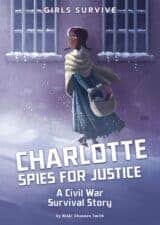
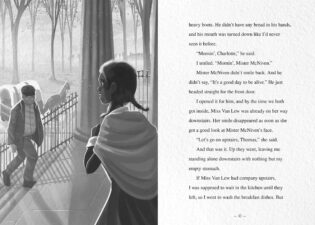
Charlotte Spies for Justice A Civil War Survival Story (Girls Survive) by Nikki Shannon Smith
Based on the true story of a courageous female spy in the South during the Civil War. Charlotte is a servant girl in Elizabeth Van Lew’s house, who becomes a spy for the Union. Readable, compelling, and interesting.
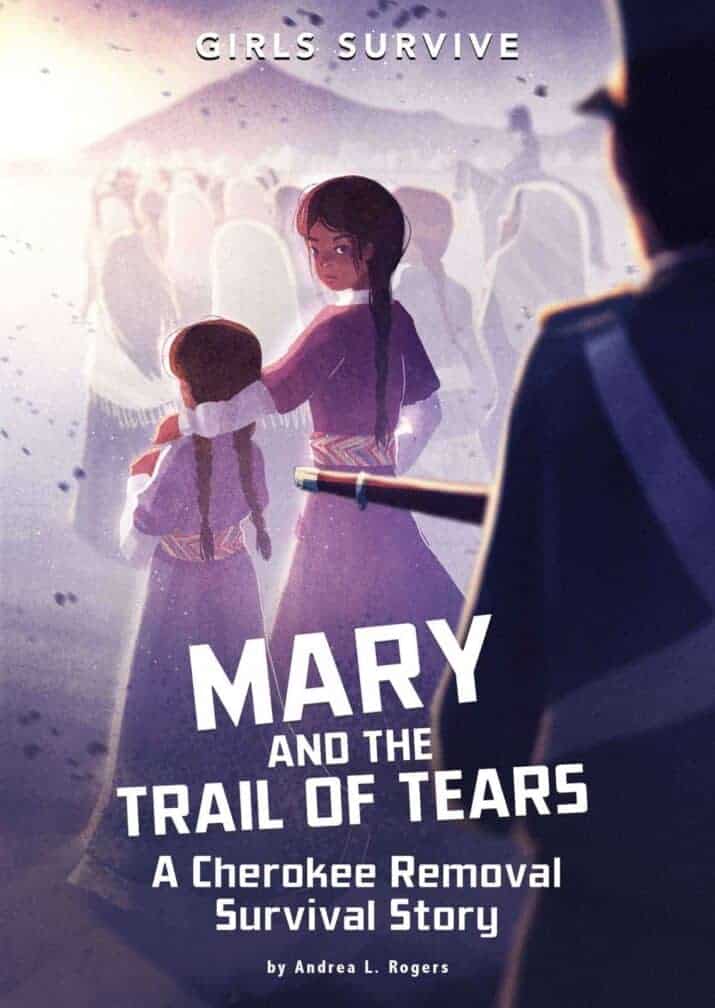
Mary and the Trail of Tears A Cherokee Removal Survival Story by Andrea L. Rogers
#OwnVoices
This is a historical fiction beginning chapter book that may be too mature for most growing readers. It is all true and well-written but it’s very realistic making it more challenging for sensitive readers who may be affected by the death, murder, and trauma that happens when the Cherokee Nation’s homes were taken by force.
OwnVoices Middle-Grade Books for Ages 8 – 12
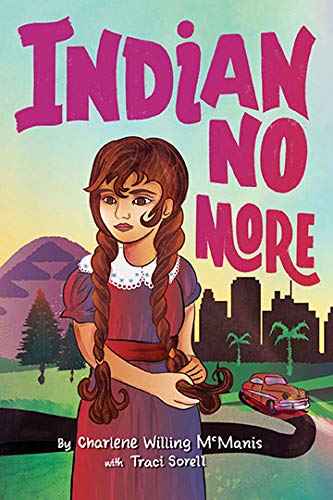
Indian No More by Charlene Willing McManis and Traci Sorell
Indian No More is an emotional, important story about when the U.S. government arbitrarily made certain Native American tribes no longer tribes without reservations or legal rights. It also shows the historical landscape of prejudice and stereotypes towards people of color. I love the close-knit, loving family based on the author’s own life, a family who values each other and their survival. This book is a must-read and must-own for all schools and libraries and would make an excellent book club selection.
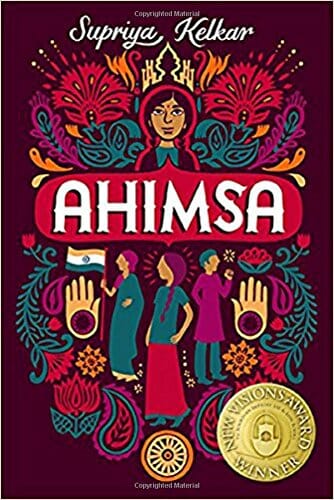
Ahisma by Supriya Kelkar
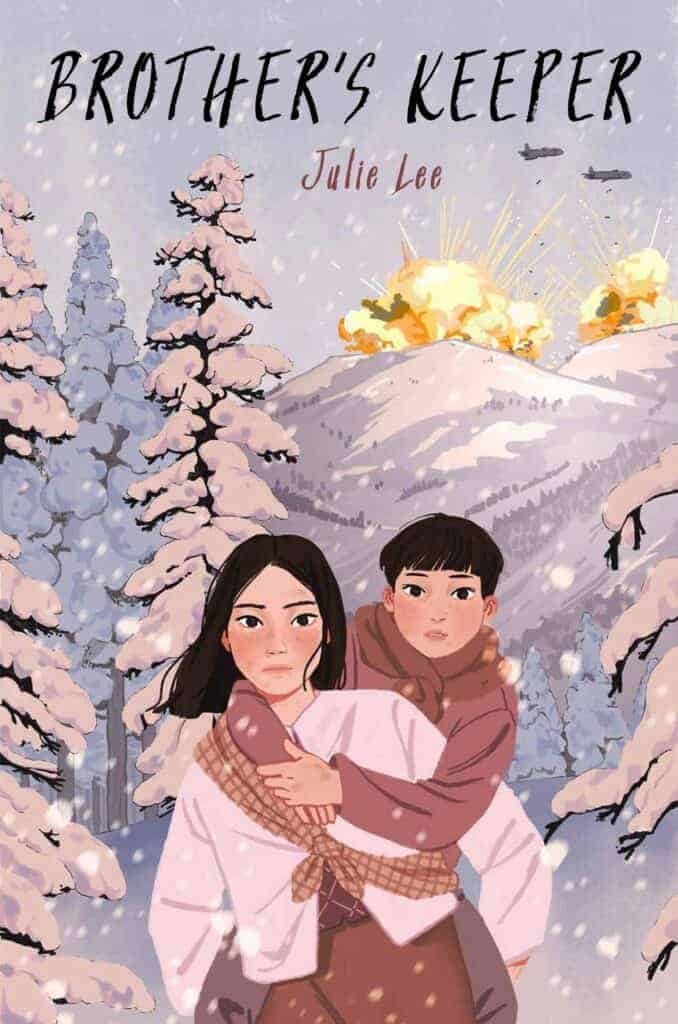
Brothers Keeper by Julie Lee
Based on her grandmother’s escape from North Korea, this historical fiction is a powerful read that captures the fearful culture of North Korea, the marginalization of females, and the bond between siblings. As war erupts with South Korea, Sora and her family decide to flee from North Korea while they might still have a chance. Sora and her little brother are separated from their family yet continue on to the south. They experience death, kidnapping, starvation, killings, winter’s brutal cold, all the while the Red Army marches right behind them, and her brother, Youngsoo gets sicker and sicker. The siblings’ journey is interspersed with memories of her childhood including her mother’s disdain and criticism and how she was forced to leave school to care for her little brothers. Amazingly, the two make it to the south where they’re reunited with the rest of their family but it’s a bittersweet ending.
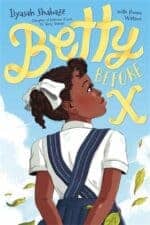
Betty Before X by Ilyasha Shabazz and Renee Watson
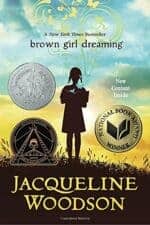
Brown Girl Dreaming by Jacqueline Woodson
Written in verse, Woodson shares her experience of growing up as an African American girl in the 1960s and 1970s. This Own Voices historical memoir is a Newbery Honor Book. Woodson shows how her love of stories and words helps her as she grows up during the Civil Rights Movement, dealing with racism, and finding her voice.
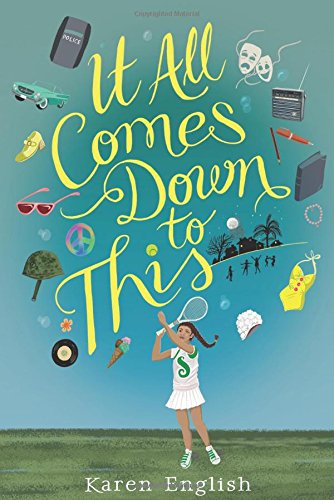
It All Comes Down to This by Karen English
Experience the 1960s in Los Angeles, a turbulent time of racism and burgeoning activism, from the perspective of Sophie, a sweet black girl who lives in an all-white neighborhood. Her parents’ marriage is in trouble, her sister is about to leave for college, and her best (white) friend has abandoned her. Surprisingly, Sophie’s strict, disapproving housekeeper becomes her ally, something Sophie needs during the challenges of life and growing up. Well-crafted story and characters.
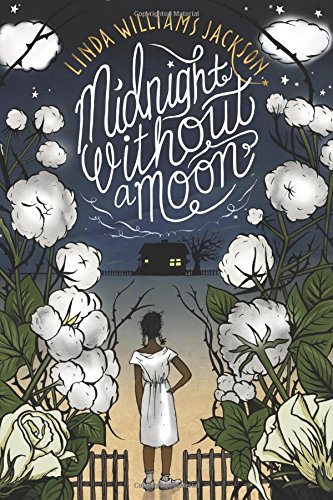
Midnight Without a Moon by Linda Williams Jackson
Williams Jackson masterfully tells the history of the 1950s in Mississippi with compelling characters and an interesting plot. Rose Lee Carter is a girl who is raised by her grandma and father, works in the cotton fields, and is best friends with the preacher’s son. She dreams of leaving Mississippi for the north like her mom and aunt, especially after the white men who killed Emmett Till are found not guilty in a real-life historical trial.
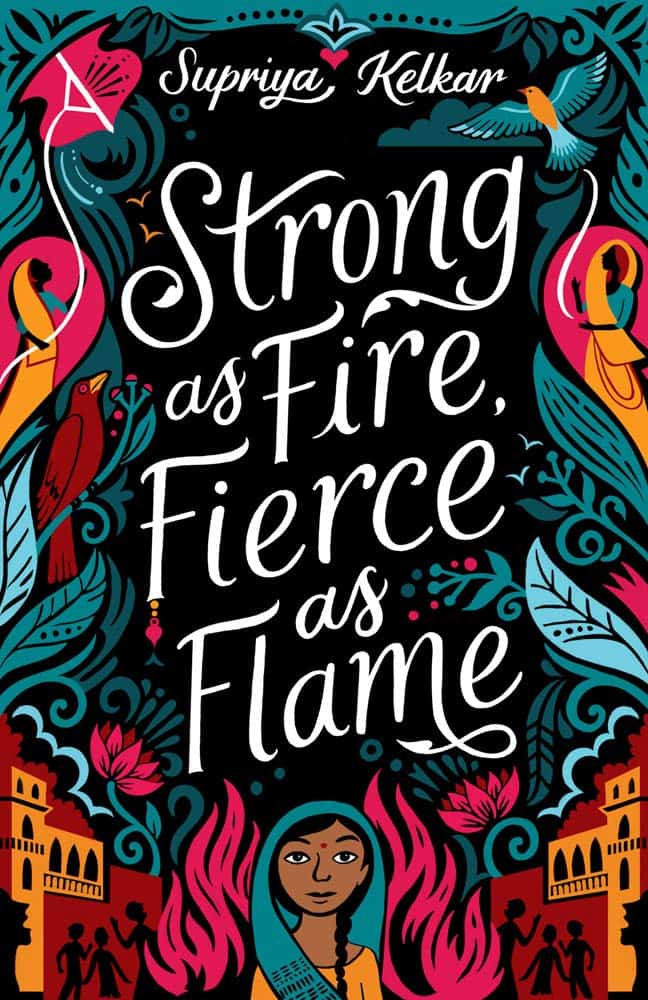
Strong as Fire, Fierce As Flame by Supriya Kelkar
Don’t miss this powerful story set in colonial India about a girl finding her voice and inner strength. Meera’s dad holds fast to his beliefs that if her husband dies, so she must also die. She’s only twelve and still lives at home but just as she’s about to live with her husband (who she married as a child), her husband dies! Now her father expects Meera to join her husband’s funeral pyre. She doesn’t go. Her aunt gives her the courage to flee. But as she’s escaping, she’s captured by a British captain and assigned to work in his kitchen where she witnesses firsthand the institutional racism and cruelty to her people. Initially, Meera is afraid but she learns that she can not look the other way and fights back by helping the resistance.
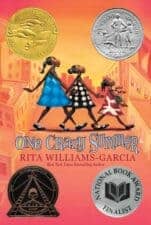
One Crazy Summer by Rita Williams-Garcia
Sent to live with the mother that abandoned them, the sisters are in Oakland, California for the summer where they go to a Black Panther day camp and try to connect with their mother. A Newbery Honor Book.
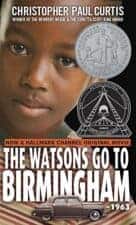
The Watson’s Go to Birmingham by Christopher Paul Curtis
One of the most read and loved historical fiction middle-grade books ever, this book tells about the Watson family driving from Flint, Michigan to Birmingham, Alabama to visit relatives in the 1960s. There, they hope to set their son Bryon straight. The car trip builds up to the deeply disturbing church bombing where their Grandma goes to church. This is a moving story filled with hope and humor and a Newbery Award Winner.
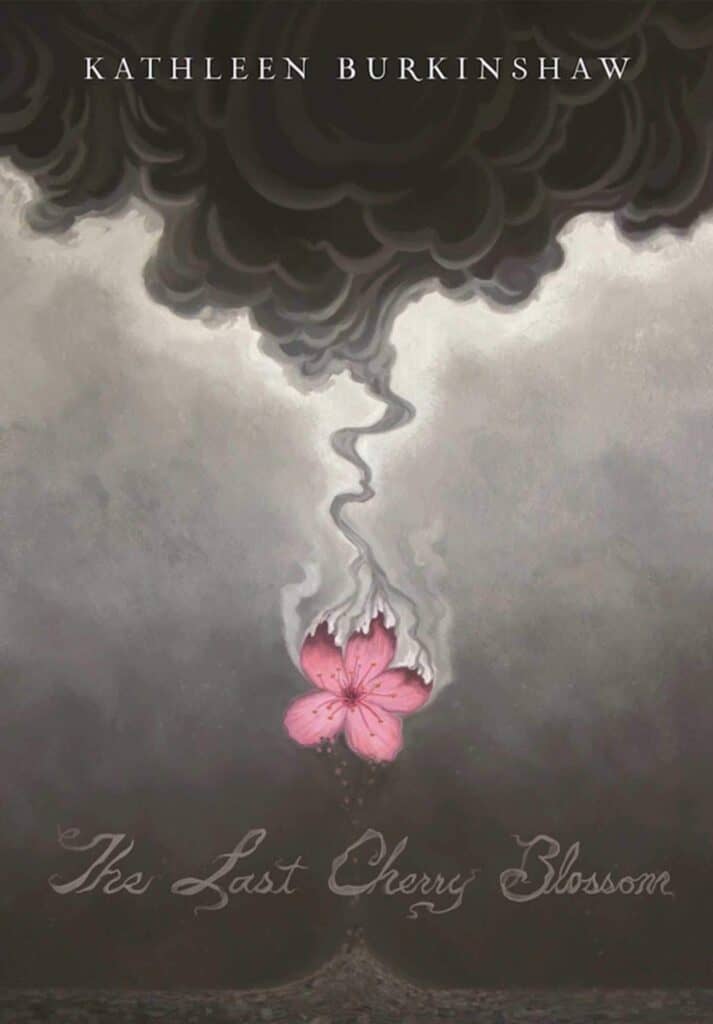
The Last Cherry Blossom by Kathleen Burkinshaw (ages 11+)
In this beautifully-written, eye-opening story, we follow the life of Yuriko, a Japanese girl who lives in Hiroshima during World War II. Initially, her life revolves around drama with her family and friends just like a typical child’s life in any country. But, in this recounting of Burkinshaw’s mother’s actual experience, her life is torn apart when the atomic bomb is dropped. Not to mention that it comes as a shock to learn that Japan has been losing the war. Yuriko’s life becomes a nightmare of survival and endurance.
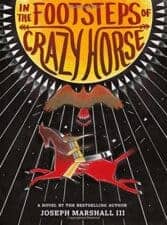
In the Footsteps of Crazy Horse by Joseph Marshall III, illustrated by James Mark Yellowhawk
Jimmy McClean’s grandfather takes him on a road trip where he shares the stories of Crazy Horse’s life and battles up to his death. The duo travel from the Dakotas (home of the Lakota) to Wyoming and other places significant to Crazy Horse. The result teaches readers a sobering true history and is one that will stay with you long after you’re done.
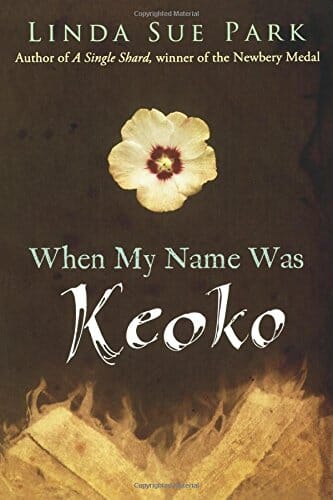
When My Name Was Keoko by Linda Sue Park
When Korea is occupied by Japan, the Korean language, folktales, and culture is expressly forbidden. Then World War II arrives, along with the expectation that Koreans will fight for Japan. Sun-hee is shocked that her brother, Tae-yul, enlists to misdirect the army’s interest in his uncle. The story is filled with injustice, resistance, courage, and family bonds during a difficult historical time period of occupation.
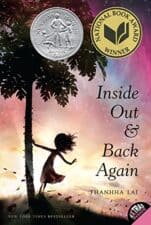
Inside Out and Back Again by Thanhha Lai
This Newbery Honor Book shares the story in verse of a girl, Hà, who flees Vietnam with her family and immigrates to the southern United States where the transition is horrible, hard, and sometimes funny.
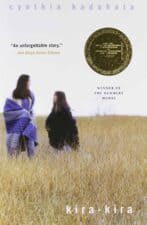
Kira-Kira by Cynthia Kadohata
This book is both sad and beautiful. Katie’s sister, Lynn, tries to help Katie make sense of the prejudice and challenges that their Japanese-American family faces in Georgia in the 1950s. When Lynn gets very ill, Katie tries to emulate her sister’s positive outlook.
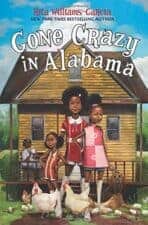
Gone Crazy in Alabama by Rita Williams Garcia
It’s a typical southern summer in Alabama 1969 and Delphine and her two sisters are visiting their extended family. Daily life means minding their grandmother, Big Ma, a crotchety matriarch, getting extra loving from their much sweeter great-grandma, Ma Charles, hanging out with neighbor, JimmyTrotter, and working at the tricky business of growing up. No matter what happens, a Vonetta-stealing tornado included, this is a strong family that loves each other and God with all they’ve got. It’s a powerful OwnVoices chapter book that transports you into Delphine’s world, if only for the summer.
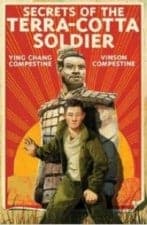
Secrets of the Terra-Cotta Soldier by Ying Chang Compestine and Vinson Compestine
If your kids aren’t interested in Chinese history, they will be after reading this novel. Ming lives in rural communist China with his father, who finds artifacts for the museum. A terra-cotta soldier comes to life and befriends Ming so they can work together to protect the other terra-cotta soldiers and Emperor Qin’s tomb. I like how the authors include historical photos and information.
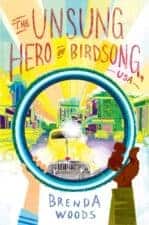
The Unsung Hero of Birdsong, USA by Brenda Woods
Mr. Meriwether Hunter pushes Gabriel out of the path of an oncoming car which begins a relationship between a young white boy and the black WWII vet. Gabriel’s eyes slowly notice the discrimination that his new friend and his friend’s family face — including that Mr. Hunter doesn’t talk about being a soldier. It’s a realistic, historical narrative that introduces kids to the south’s prejudices as well as the treatment of soldiers after WWII.
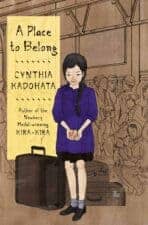
A Place to Belong by Cynthia Kadohata
After World War II ends, 12-year-old Hanako’s family flees the cruelty of the United States to Japan, a country she’s never lived in but her family hopes will welcome them. But it’s not a great situation in Japan either. It’s a country devastated by war and a difficult place to live with little food available. The narrative moves slowly with a lot of introspection and thoughtfulness.
YA Books for Teens
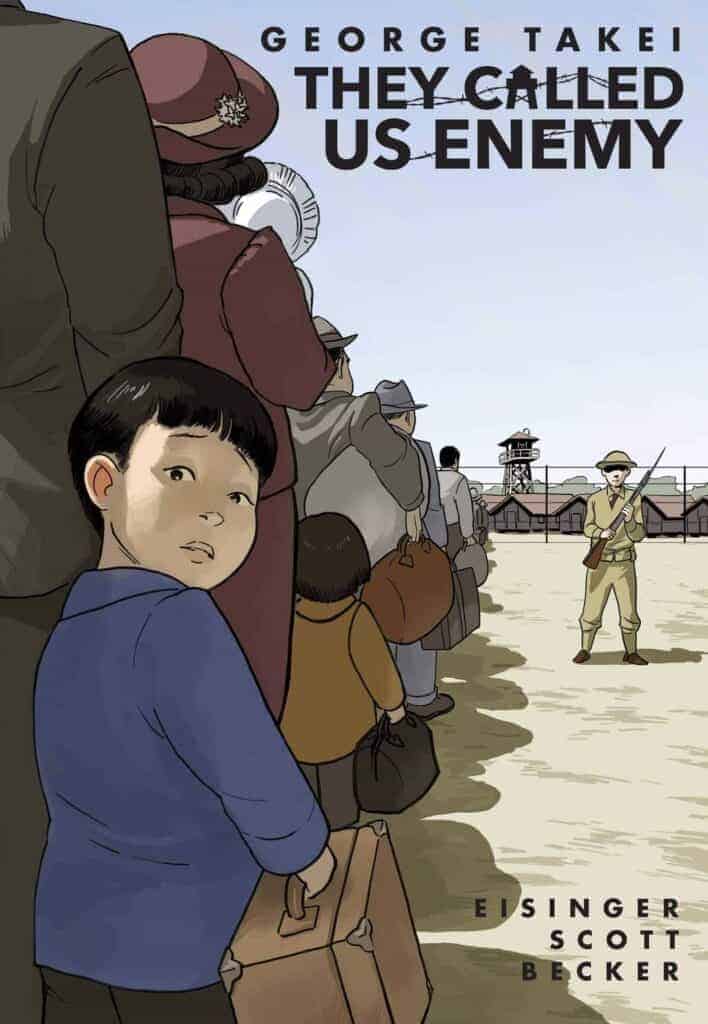
They Called Us Enemy by George Takei, Justin Eisinger, & Steven Scott, illustrated by Harmony Becker
In WWII when the US government declared war on Japan and subsequently all Japanese people, forcing anyone of Japanese descent, including children, into detention camps, George’s family leave behind a two-bedroom house in Los Angeles, taking only what they can carry. They are transported first to a cramped, smelly horse stable and then to a bare-bones, overcrowded barracks surrounded by barbed wire and armed guards. George and his brother adapt well –mostly because they have amazing parents but this story also shows the reality for the adults in their new, unfair situation. Then when World War II ends, leaving the camps isn’t an easy, happy ending for any of the detained families. As you can imagine, they have nothing– no jobs nor bank accounts and are returning to a world of prejudice. The narration jumps to present-day events, showing similar human rights violations such as the current detainees and separation of families which powerfully connects how we are even now facing grave injustices against human rights. A brilliant, must-read ownvoices historical memoir.
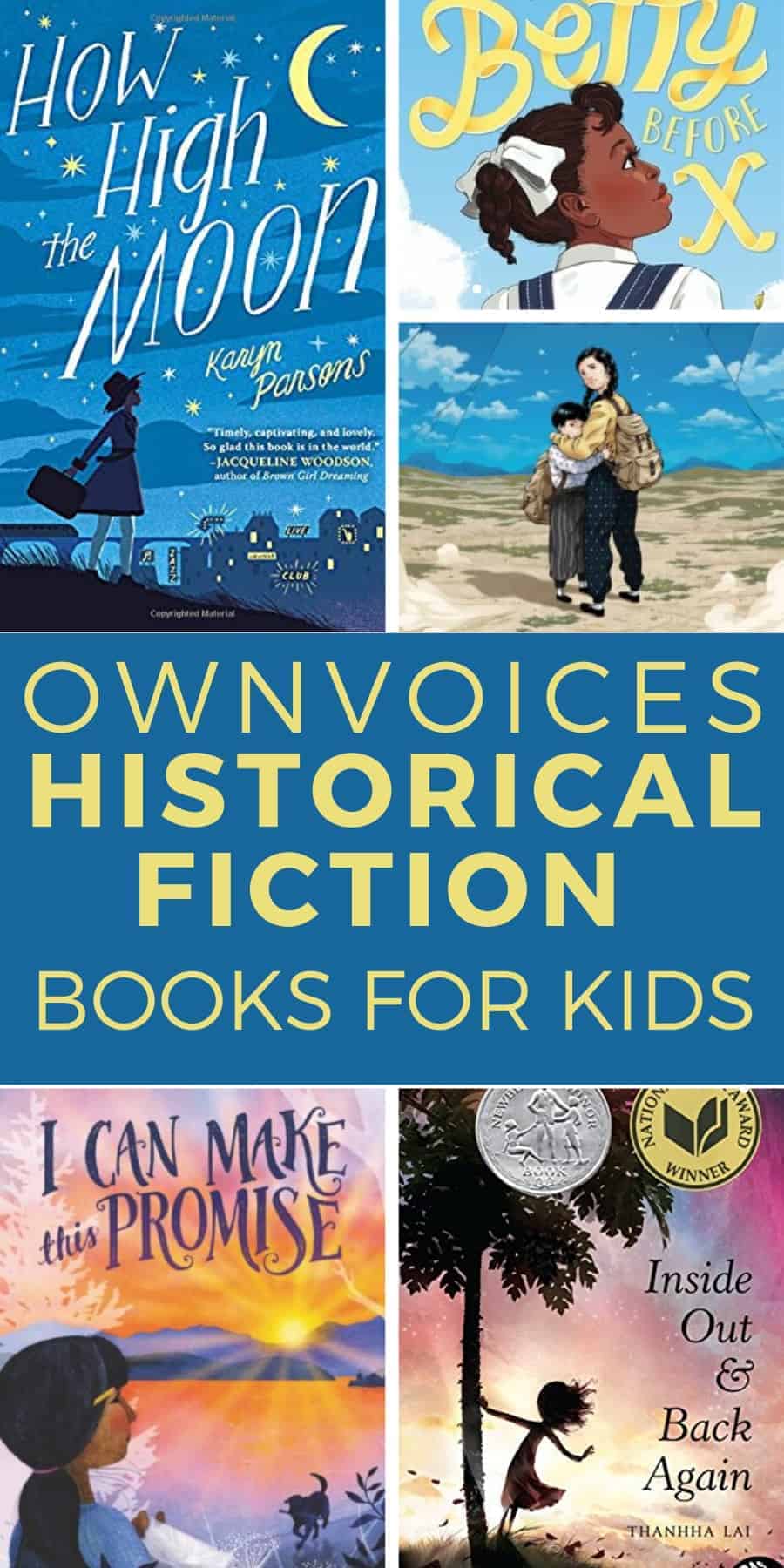

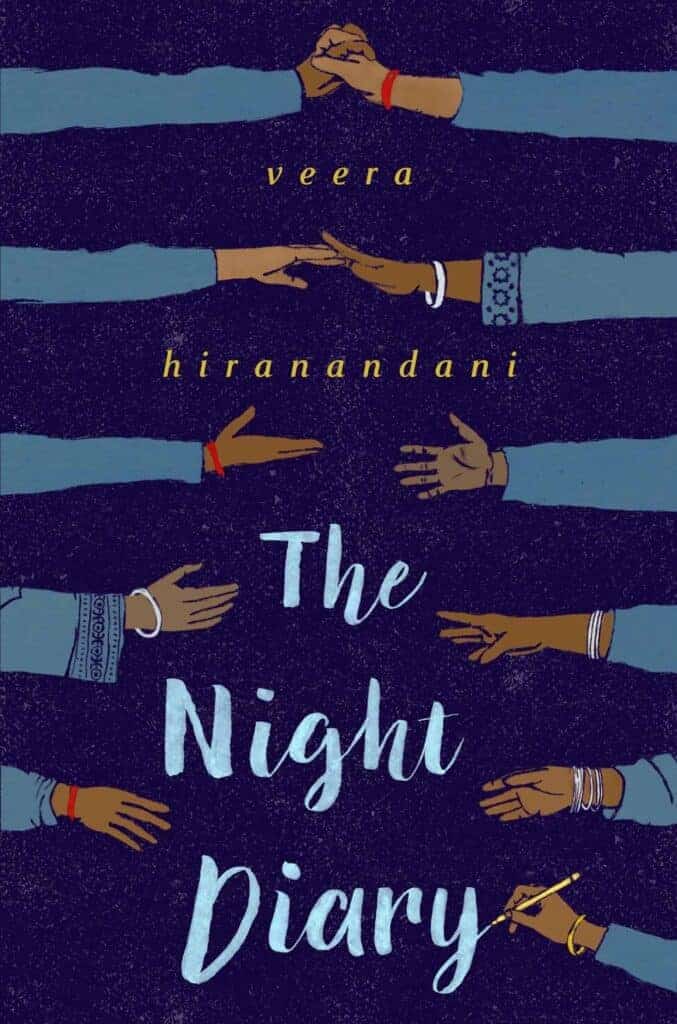
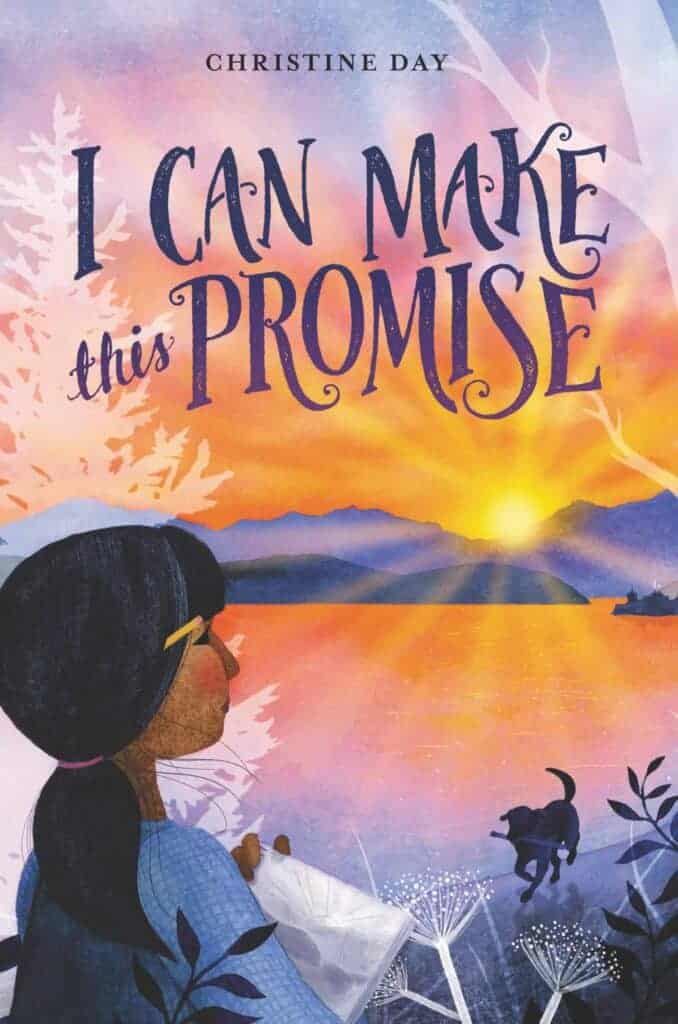
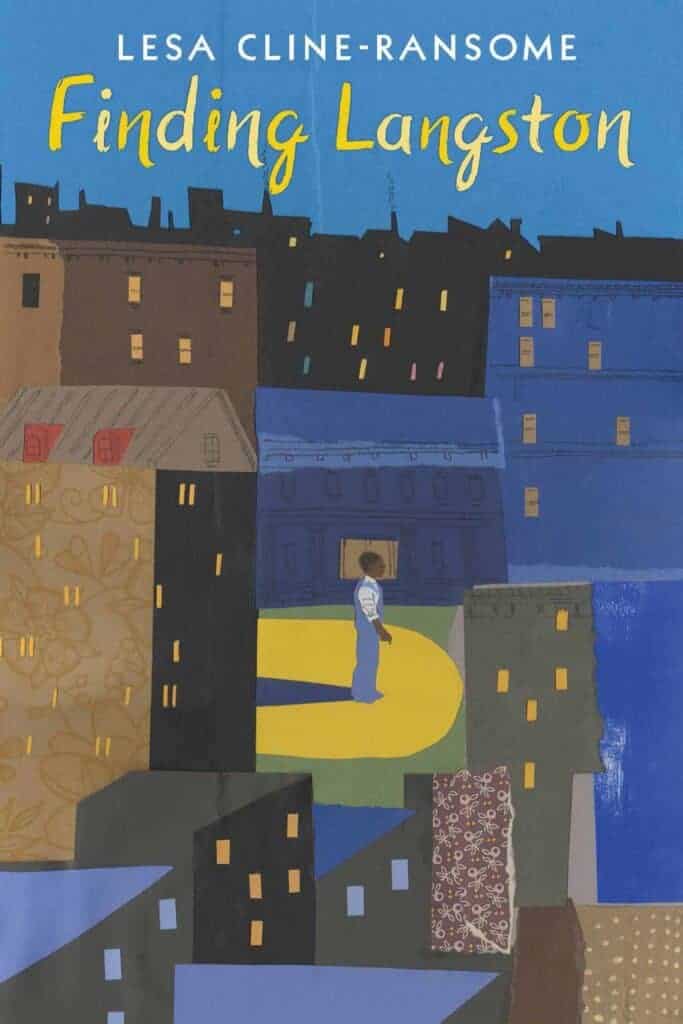
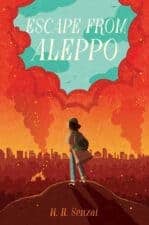

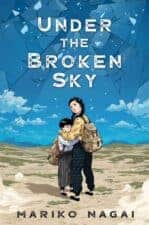
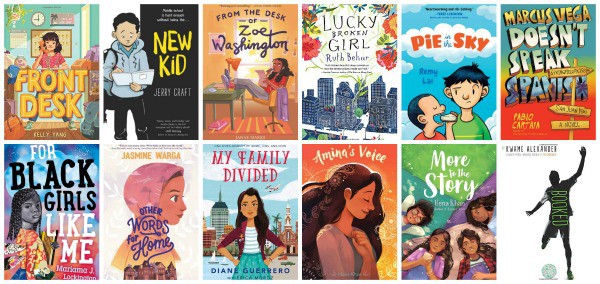
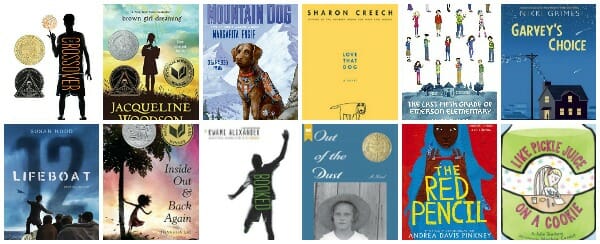
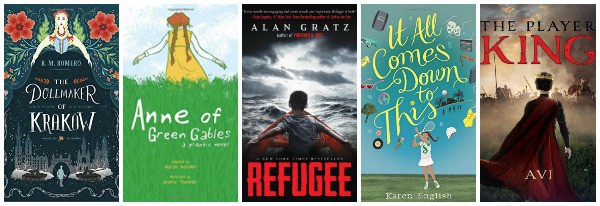
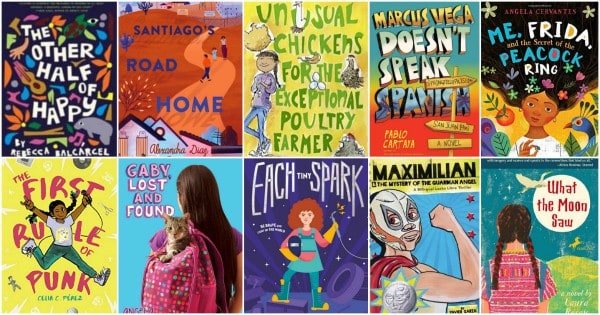

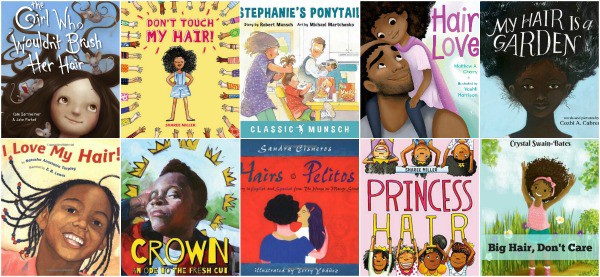

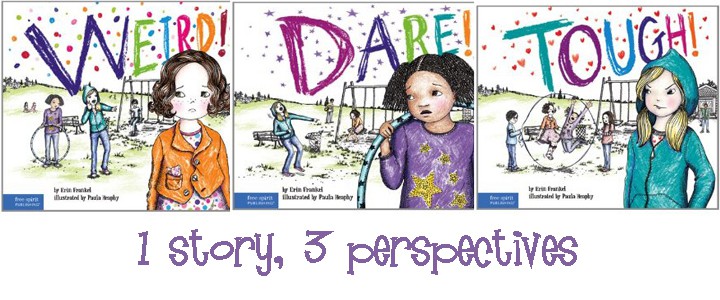
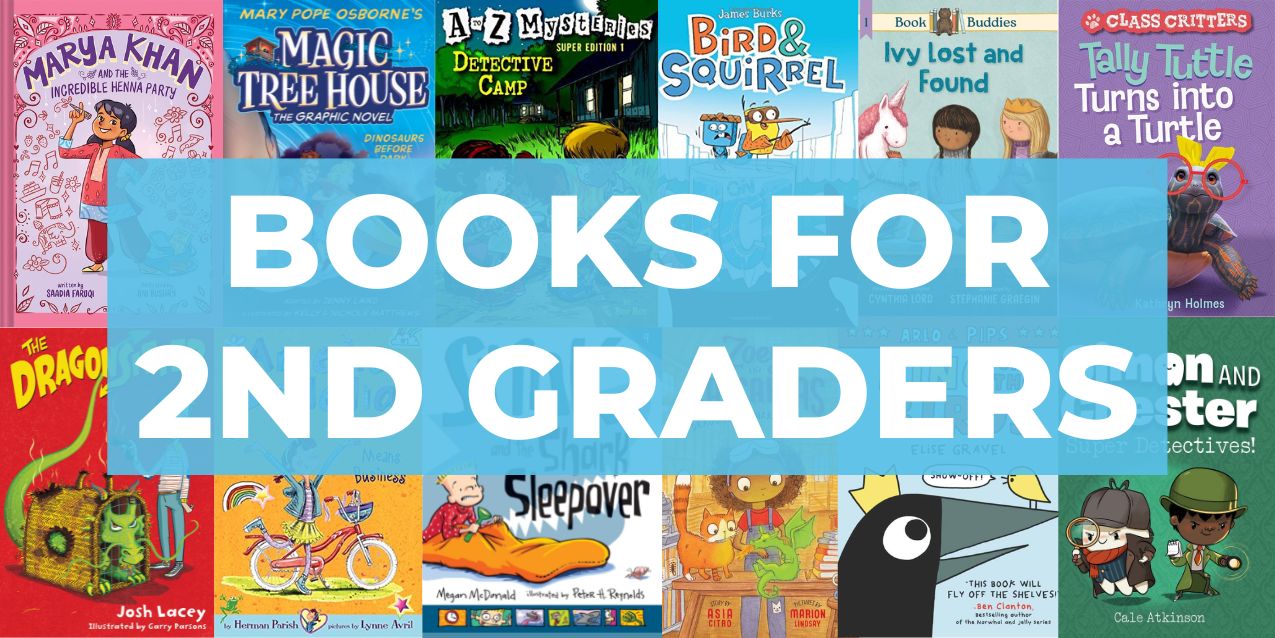

Thanks for defining own voices for me. I actually wasn’t aware of that term but I find it very interesting to know. Keeps things more authentic. Thanks for this great list of own voice historical fiction reads.
You’re welcome, Scarlet. I hope it’s a helpful list for you.